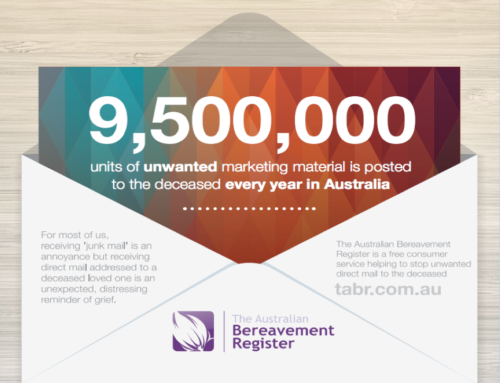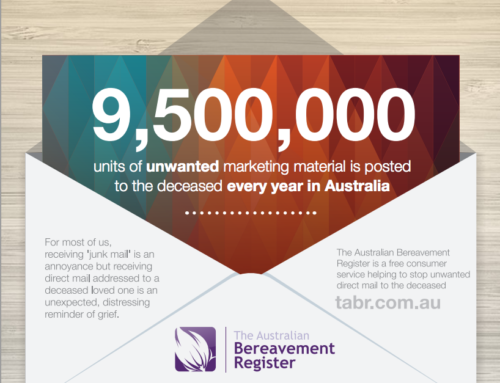Any organisation which directly promotes its products or services to its customers or prospects using a rented mailing list will know that one of the most embarrassing, insensitive and costly errors to a direct mailer is sending a mailing piece addressed to someone who is deceased. Such actions can cause a great deal of distress to the bereaved family members, especially when you consider the kind of eye-catching slogans that might be used to grab attention. Headlines such as “Put a smile on everyone’s face this Christmas,” “You’re pre-approved” or “We need your support this Christmas!” can cause genuine and understandable upset.
A Costly Mistake
It’s easy to relate to this kind of situation. Losing a loved one is a hugely emotional experience that we all have to go through at some point in our lives.
So, it goes without saying that receiving an item of direct mail addressed to the deceased can be a deeply upsetting experience. It can often invoke a sense of anger at the insensitive sender — blissfully unaware of the upset they’ve caused. Naturally, this kind of unfortunate event is distressing to the relatives of the deceased and a bad reflection on the business involved.
In a recent case, a woman complained after she received a direct mail piece addressed to both her and her late husband, promoting a romantic getaway on a Pacific Island cruise.
In another case, several families in the state of Victoria complained after receiving mail from a hearing aid company. The company had sent a direct mail piece addressed to deceased family members’ who had passed away over 5 years ago. The hearing aid company purchased a rented list from a commercial list supplier.
Being Proactive: removing deceased persons from mailing lists
But that couldn’t be further from the truth. In fact, there’s now a simple solution that can vastly reduce the chance of mailings being sent to deceased individuals. The Australian Bereavement Register (TABR) was launched in 2012, and it’s become one of the most welcomed initiatives to hit the direct marketing industry. In just two years, it has captured over 400,000 records on file. In comparison, the ADMA deceased persons file comprises only 18,000 records.
TABR is also the only consumer-facing deceased suppression file product in the market, and it’s the only deceased suppression file that engages directly with the bereaved — gathering fully permissioned, verified data.
TABR goes through a highly efficient validation process and most records are captured within 14 days following a death, with information, updated daily and a new file released monthly.
The Benefits of Deceased Suppression
The benefits of using a deceased suppression file product are obvious. Most importantly, it helps you avoid causing additional upset at a difficult time.
The negative repercussions of such a mistake could also damage your brand image and seriously tarnish your reputation among consumers.
Then of course there is a financial element to consider. Research has shown misaddressed mail is costing Australian businesses an estimated $93 million dollars per year. Unnecessary printing and mailing costs can soon mount up, especially if this kind of mistake is made year after year without being addressed.
Without doubt, using a deceased suppression file product can be of huge benefit to your business.
So for more information about TABR, call us today on 02 9340 7019 or click here to view the TABR product fact sheet on the Conexum Direct website.











